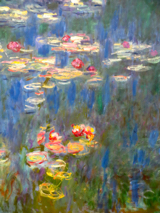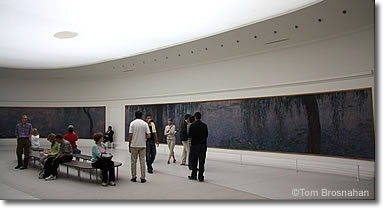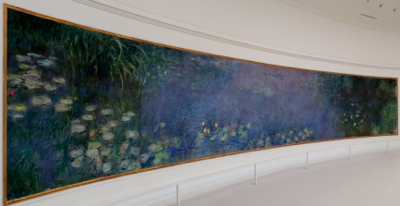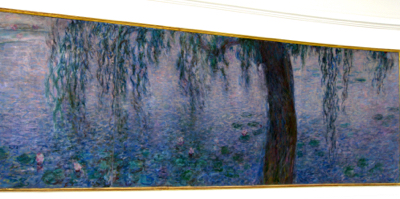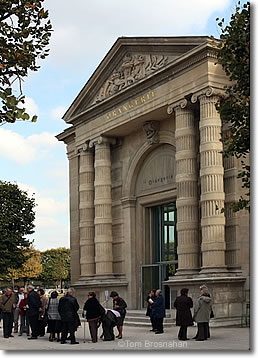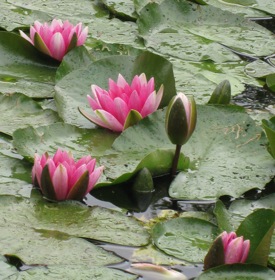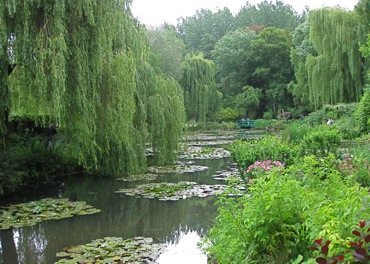 |
Musée de l'Orangerie, Paris, France | |
| If you enjoy the work of 19th-century Impressionist painter Claude Monet, be sure to visit Paris's Musée de l'Orangerie by the Jardin des Tuileries. | ||
|
|
|
At the western end of the Jardin des Tuileries, just off Place de la Concorde by the Seine (map), is the Musée de l'Orangerie, home to the magnificent Les Nymphéas (Water Lilies) murals by Claude Monet. The Water Lilies are displayed in two sublime oval-shaped galleries that are perfect for them. Long benches allow you to contemplate the works at your leisure, and diffused natural light shows them to good effect. (Go on a sunny day for best viewing.) There are several large panels in each room, so you find yourself surrounded by water lilies. (In addition to the eight large panels at the Orangerie, there are other water lily paintings at museums in Paris and around the world.) This is one of our favorite museums in Paris. The Water Lilies are unique and worth visiting and revisiting, to admire the beautiful colors and soft strokes. Above, one of the oval galleries. You may need to wait a bit for the crowds to clear so you can get a full view of the murals, but it's worth the wait. Below, Two of the water lilies panels, showing different scenes and moods.
Our tip: as you enter a gallery, stand right by the door and gaze at the paintings —it's the best distance for them. The benches are actually a bit too close at many points. The water lilies at Monet's home in Giverny were the focus of his painting for the last decade of Monet's life. Giverny is an excellent day trip from Paris. More... Monet offered the Water Lilies to President Georges Clemenceau the day after the armistice that ended World War I on November 11, 1918. The description states, Il fait des Nymphéas un monument à la paix, la paix militaire, ce qui met fin a la Grande Guerre, mais aussi la paix intérieure de l'homme. (He made the water lilies a monument to peace, military peace that ended the Great War, but also the interior peace of man.) The galleries are truly peaceful, and visitors treat them with reverence and respect. On the lower floor of the Orangerie are galleries for the astoundingly rich collection of paintings assembled by art dealer Paul Guillaume, including works by Impressionist and post-Impressionist painters such as Renoir, Cézanne, Utrillo, Soutine, Matisse and Picasso. Other galleries hold changing exhibits by living artists. More... The Musée de l'Orangerie is a logical place to refresh your spirits after the overwhelming richness of the nearby Louvre. By the way, the Jeu de Paume, a few steps away at the northwest corner of the Jardin des Tuileries, offers photography and other image exhibitions from the 19th to the 21st century. For lunch, the Jardin des Tuileries has six café-restaurants with plentiful outdoor tables in good weather. Métro: Concorde,
or walk from the Louvre. Paris Museum Pass accepted. In addition, combination tickets are available with the Musée d'Orsay or Giverny. Closed Tuesday. Musée de l'Orangerie
|
|
Above, Musée
de l'Orangerie.
|
